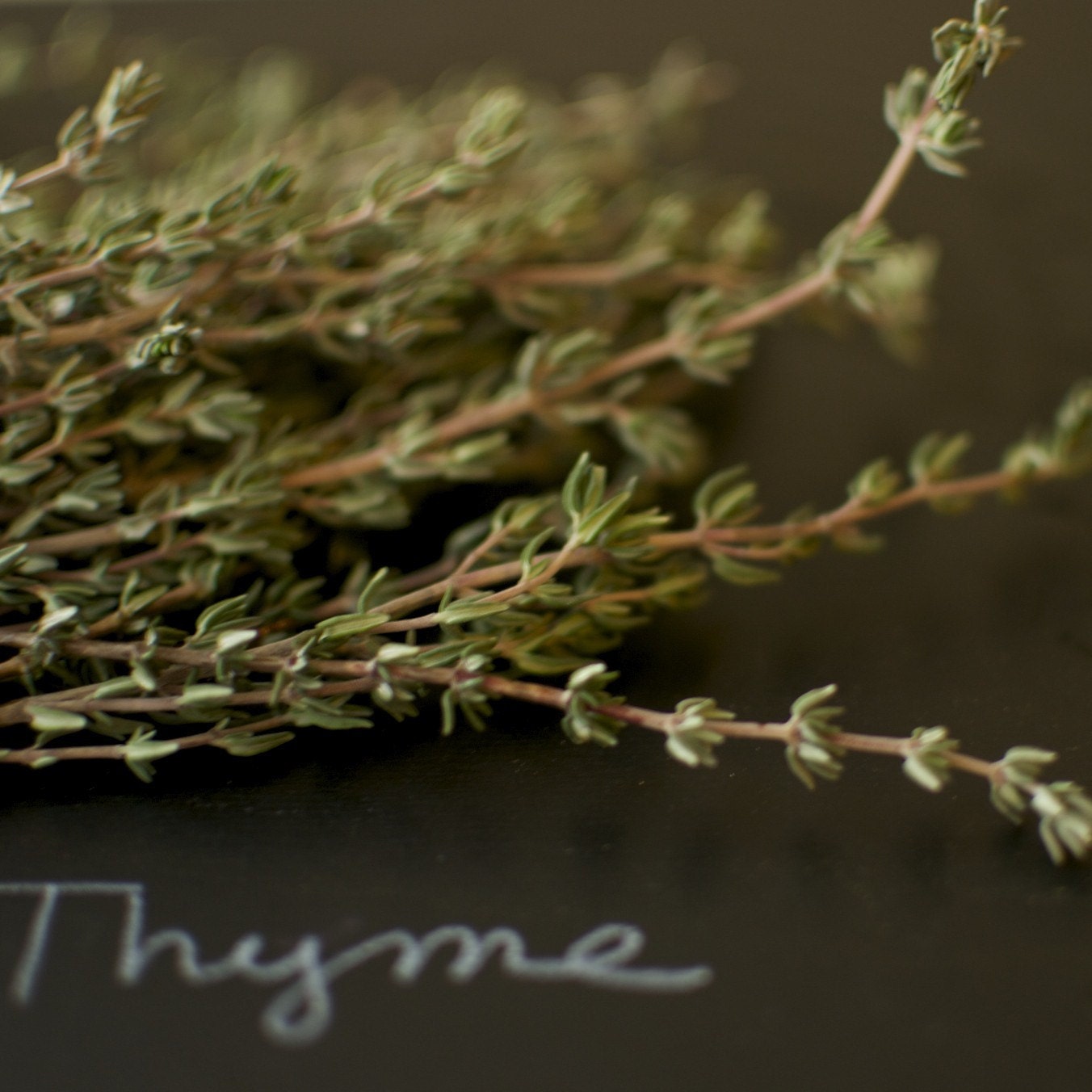 |
| These wonderful organic seeds were found in ETSY shop Cubits at http://www.etsy.com/shop/cubits?ref=seller_info |
Romans are said to have also used this plant's aroma to chase away melancholy. Today it is used in the same manner and used by aromatherapists to strengthen one emotionally and mentally. Whenever I am breathing the scent in while I work with a sachet mix that includes a little thyme I can feel the my brain fog lift.
Cosmetically, thyme is considered a good disinfectant, an antiseptic, and great for toning the skin. Because of these great cleansing and toning properties thyme is often found in quality natural face creams, baths, lotions, and more.
Thyme is also useful as a natural decongestant, it can aid in digestion and is also thought to be a good muscle relaxant. But as with any other homeopathic remedy you should always check with your doctor before using and never use this as a substitute for medical treatment.
Whenever using an essential oils conduct an allergy test prior to use and never apply directly to your skin or directly stick your nose close to the bottle (dropper, spoon, cover, etc.) Often essential oils are strong enough to burn the thin membranes inside your nose.

1 comment:
What a great source of information, thank you so much and what a combination of offerging you put together!
Post a Comment